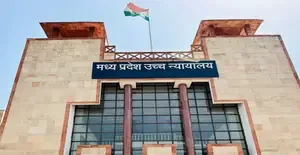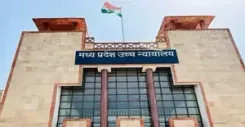What Measures is Punjab CM Taking for Flood-Hit Areas Amid Rising Health Concerns?

Synopsis
Key Takeaways
- The Punjab government is actively addressing health risks post-floods.
- Health camps have reached over 1.50 lakh individuals.
- Essential health kits are being distributed to communities.
- A comprehensive fumigation and vector control campaign is underway.
- ASHA workers are crucial in ensuring household coverage.
Chandigarh, Sep 16 (NationPress) With a significant rise in fever, diarrhoea, and skin infections in districts affected by floods, Punjab's Chief Minister, Bhagwant Mann, has issued a directive to the Health and Family Welfare Department to enhance relief efforts concerning diagnosis and treatment.
During a review meeting, the Chief Minister highlighted the catastrophic damage caused by floods in various districts and expressed concerns about the potential spread of diseases among both humans and animals as floodwaters recede.
To combat this looming public health crisis, the government has already undertaken extensive measures to safeguard against disease transmission in both people and livestock.
As of now, approximately 1.50 lakh individuals have benefited from health camps that are witnessing a surge in cases of fever, diarrhoea, and skin infections.
A special health initiative was launched on September 14 to tackle post-flood health concerns, focusing on providing accessible healthcare in affected villages, preventing vector-borne, waterborne, and communicable diseases, safeguarding vulnerable populations, and enhancing disease surveillance and rapid response capabilities. Health camps have been established in all 2,303 villages, with dedicated teams of doctors and paramedical staff equipped with essential medications and supplies attending to the needs of the populace.
Additionally, every ASHA worker is ensuring coverage of all households in the villages, with approximately 2.47 lakh households already reached.
The Chief Minister announced that health kits are being distributed in villages, containing items such as ORS, mosquito repellent, paracetamol, cetirizine, chlorine tablets, soap, and basic first-aid essentials.
By September 20, the aim is to cover every household.
A 21-day fumigation and vector control initiative has also been launched to encompass all villages across the state. Door-to-door inspections for mosquito breeding are being conducted, with immediate larvicidal spraying where breeding sites are identified, alongside ongoing village-wide fumigation.










